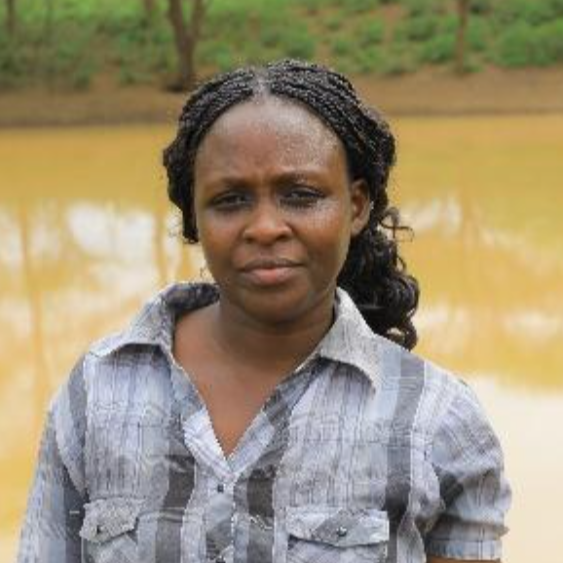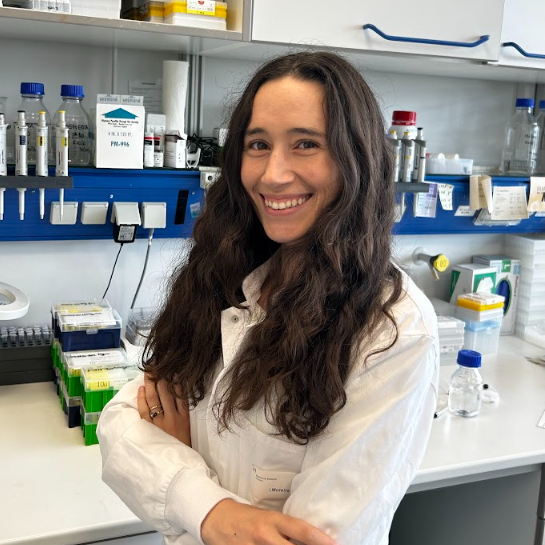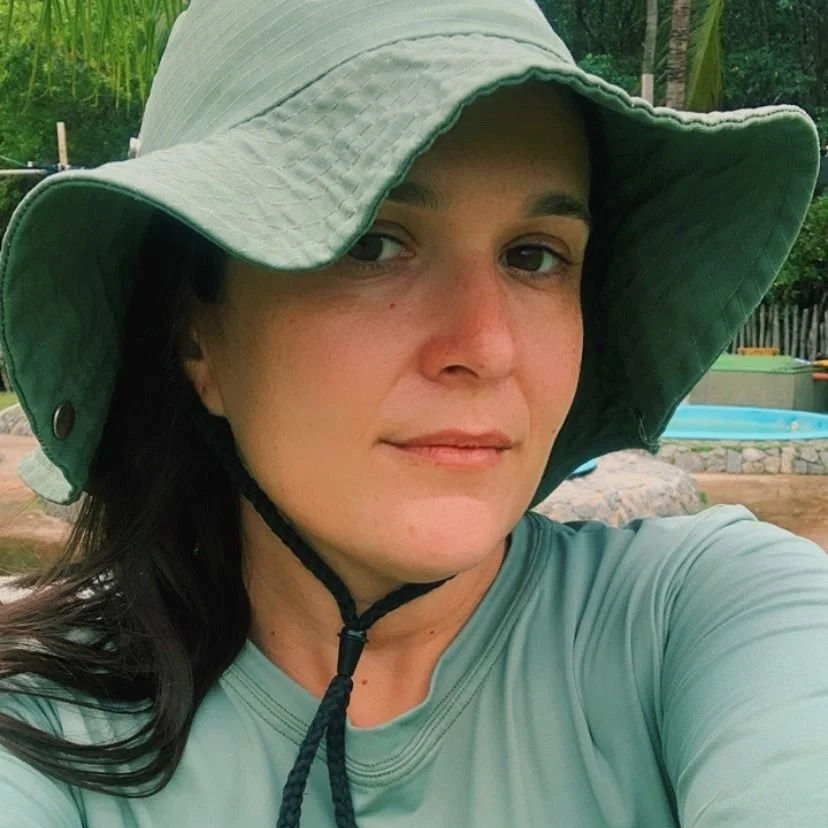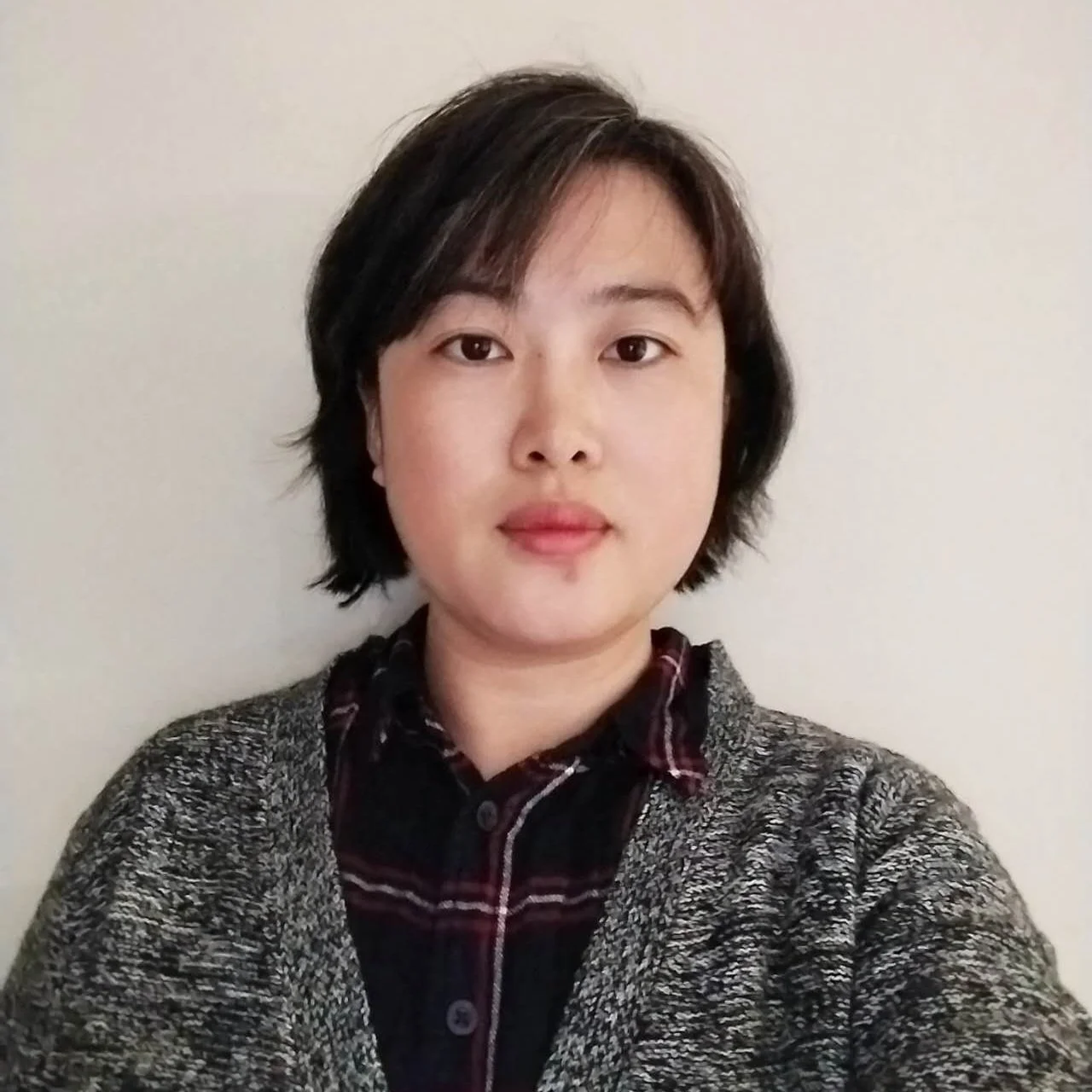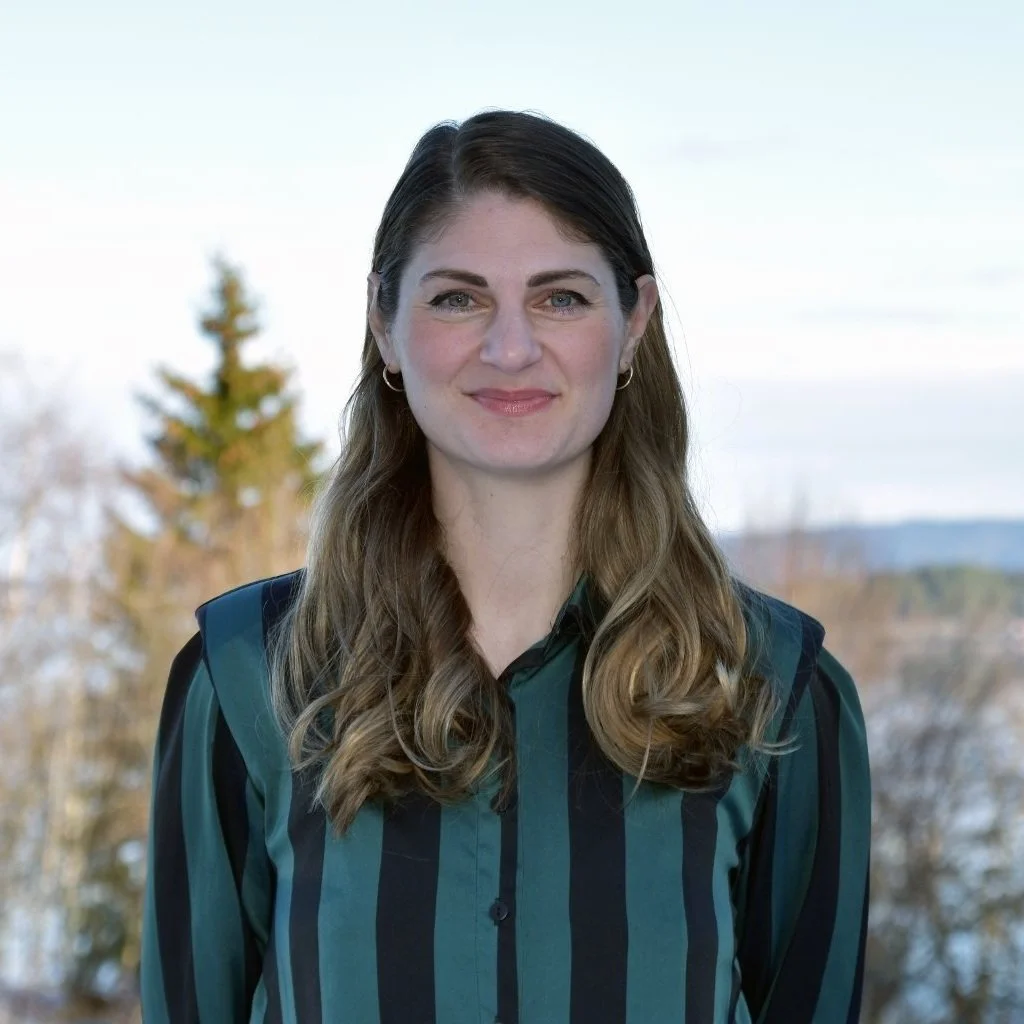The Mothers in Science Caregiver Travel Grant aims to promote the career advancement of women in STEMM by removing the financial obstacles to conference participation associated with caregiving responsibilities.
Ten (10) grants of 250 EUR each will be awarded to caregivers who wish to attend an in-person scientific conference in 2025. The funds for these grants were raised through our memberships, and we are extremely proud of our wonderful member community and grateful for their ongoing support. This flexible grant allows each award recipient to find a suitable solution to meet their specific caregiving needs. Funds can be used to cover any expenses associated with childcare, elder or disability/chronic illness care necessary to allow conference participation, as long as they are clearly justified. The next call will open in February 2026.
Not a member yet? Become a member to be able to benefit from this unique opportunity.
Congratulations to the 2025 award recipients!
We are delighted to introduce the 2025 awardees! These outstanding individuals have demonstrated exceptional dedication to advancing their research careers while balancing the demands of caregiving and challenging personal circumstances.
Edith Jepchirchir Kurui
PhD Student at University of Eldoret (Kenya)
Edith is a PhD student from Kenya and a mother to three children aged 9, 6, and 1. Her research focuses on microbial source tracking of waterpans to explore their role and health impact among its users, using various methodologies such as photovoice, fecal pellet survey, water sampling, and the development of seasonal calendars. She is a passionate water and sanitation expert and she wants to make an impact among the people living in arid and semi-arid areas to access clean and safe drinking water. Financial challenges as a caregiver have delayed her academic career as she is often unable to conduct fieldwork or present her research at international conferences. She aspires to mentor a new generation of women from Kenya and across Africa in exploring science, technology, and mathematics, and to develop her own research group.
Rachel Hicks
PhD Student at Western Sydney University (Australia)
Rachel is a PhD candidate from Australia and mother of two children under 6 years old. Her research focuses on diabetes lived experience, community perspectives, as well as engagement and communication, to assist and improve the pregnancies and healthcare experience of people with diabetes. As a mother living with Type 1 Diabetes and multiple chronic autoimmune conditions, Rachel faces considerable challenges in advancing her research and academic career, particularly during recurring periods of illness. Her research has experienced delays due to extensive illness, high-risk pregnancies, and traumatic births. Rachel's career objective is to assist as many women with diabetes as possible in achieving successful family planning journeys, while also strengthening ties between healthcare professionals and communities. She aspires to become an independent researcher and lead a diabetes research center, leveraging her lived experience and academic expertise to improve diabetes care and pregnancy outcomes.
Ide Armelle CHATUE
PhD Student at University of Yaoundé (Cameroon)
Ide Armelle is a PhD student in medical microbiology studying at the University of Yaoundé (Cameroon) and a recipient of the ICGEB We-STAR Fellowship. Her research focuses on understanding how Epstein-Barr virus reactivation influences the severity of Plasmodium falciparum malaria during pregnancy. She is the mother of two young daughters, aged 4 years and 11 months, for whose daily care she is solely responsible, as her husband works extended hours. These caregiving responsibilities significantly limit the time she can dedicate to research and restrict her ability to attend conferences and engage in professional networking. She aspires to pursue postdoctoral studies and, in the long term, establish herself as an independent researcher, leading her own research group.
Inês Moreira
PhD Student at Hannover Medical School (Germany)
Inês is a PhD student in cancer glycobiology from Portugal and the mother of 20-month-old twin girls. She is currently conducting her doctoral research at Hannover Medical School in Germany, where she studies the role of glycans in bladder cancer, focusing on their potential as non-invasive biomarkers. Inês relocated to Germany with her husband during the pandemic to pursue her academic ambitions and has since been balancing motherhood and full-time research. As part of a dual academic couple working in the same field and living abroad without nearby family support, attending conferences often presents both logistical and financial challenges. She is passionate about science communication and aspires to pursue a postdoctoral position in cancer glycobiology, while also supporting women in STEM.
Irene Vettori
Postdoctoral Researcher at the Materials Physics Center (Spain)
Irene is a postdoctoral researcher from Italy who relocated to Spain with her 5-year-old son to conduct research in the field of green energy storage at the Materials Physics Center. Her work focuses on phase change materials and molecular solar thermal energy storage systems, investigating their thermodynamics through both computational and experimental approaches. Irene is strongly committed to science communication, and she enjoys sharing her research findings to both adults and children in schools and public events. As a mother without family support, she often has to decline opportunities to attend international conferences due to the lack of childcare options. However, her determination and support from family and peers have enabled her to continue advancing her career. She aspires to pursue an academic career and establish her own research group.
Paula Coutinho
Postdoctoral Researcher at Federal University of Pernambuco (Brazil)
Paula is a postdoctoral researcher from Brazil and mother to a 5-year-old daughter. Her research focuses on the conservation of manatees, including their ecology and management in captivity, semi-captivity, and in the wild. Currently, her work integrates bioacoustics and artificial intelligence to develop tools for monitoring the health and welfare of manatees in rehabilitation and release programs. As a mother from a developing nation and limited family support, financial constraints often limit her access to valuable resources and opportunities for professional and personal growth, such as attending scientific conferences. She is strongly committed to continuing advancing scientific research and manatee conservation efforts, while also showing to her daughter and other young girls–through her work and perseverance–that women can achieve anything.
Yanyan Zhao
Research Associate at the University of Cambridge (United Kingdom)
Yanyan is a research associate at the Department of Clinical Neurosciences at the University of Cambridge, having earned her PhD from China Agricultural University. She is the mother of a 10-year-old son and a 4-year-old daughter, and the primary caregiver of her partner, who has been living with the effects of a severe brain haemorrhagic stroke since 2021. Her research focuses on neurodegenerative diseases, particularly the development of pre-clinical PET imaging tracers and the investigation of protein misfolding in disorders like Alzheimer’s and Parkinson’s diseases. Her work is highly interdisciplinary, involving collaboration with chemists, cell biologists, radiochemists, and clinicians across Europe. Despite taking career breaks due to her caregiving responsibilities, she has remained engaged with the scientific community and is deeply motivated to make a meaningful impact in the field of dementia research and contribute to the global effort to combat neurodegenerative diseases.
Sheila Fortes
PhD Student at the University of São Paulo (Brazil)
Sheila Fortes is a PhD student from Brazil and the mother of a one-year-old boy. Her research focuses on identifying specific brain transport proteins related to neurodegenerative diseases and developing new approaches for therapy delivery across the blood-brain barrier (BBB) using an organ-on-a-chip model. In 2024, she became a visiting graduate student at the Wyss Institute at Harvard University (USA), and upon returning to Brazil, she was awarded a new scholarship to complete her PhD at a prestigious research center in Hungary, where she is currently living with her son. After completing her PhD, she hopes to pursue an academic career and contribute to advancements in pre-clinical and clinical research, while supporting the next generation of scientists.
Sara Farley
PhD Student at the University of Québec (Canada)
Sara Farley is a PhD student at the Université du Québec and holds a Master's degree in management of international development and humanitarian action from Université Laval. Her research interests are related to gender justice issues, in particular women's invisible work and the integration of equity-enhancing managerial practices within NGOs that perpetuate systemic discrimination. She has over 20 years' professional experience in the community sector, both in Quebec and abroad (West and Central Africa, South Asia and South America) within various NGOs, where she has specialized in the management of advocacy and human rights programs. Sara is passionate about her research and work advocating for women’s and children’s rights, and is a solo mother of two children with special needs.
Tina Torabi
Lecturer at Nord University (Norway)
Tina is a physical therapist and former professional athlete from Denmark who moved to Norway to pursue a PhD in sports physical therapy, which she successfully defended in March 2025. She is a solo mother of a 4-year-old daughter and is currently teaching while searching for a postdoctoral position. She is passionate about research supporting female health, sports physical therapy, and biomechanics. She aspires to advance research in physical therapy and use this knowledge to prevent injuries among adolescents and improve the health of female athletes. With the support of this grant, she will be able to attend a major conference in her field to present her research, expand her professional network and establish the foundation for her future research projects.
Why it Matters…
Attending scientific conferences is paramount for career advancement in STEMM, particularly for early-career scientists[1]. Conferences provide opportunities for networking, visibility, recognition and knowledge exchange, which are vital components of a successful academic career. Conferences also offer a platform for academics to present their latest research, build their scientific reputation and establish new connections and collaborations, which are essential for scientific production and for securing research grants.
Studies show that women are more likely to decline opportunities to participate in conferences due to family responsibilities[2], with potential long-term effects on their careers. Our own research shows that about 30% of mothers globally declined all or most opportunities to attend conferences since they became parents (N=3995, survey conducted on 128 countries).
The coronavirus pandemic showed that virtual meetings can provide much-need flexibility to caregivers for attending conferences on their own terms. However, virtual participation does not allow effective networking and in-person participation quickly replaced virtual conferences after the pandemic ended, with very few societies currently offering hybrid format.
Thus, effective solutions are urgently needed to provide mothers and other caregivers with equal opportunities to participate in scientific conferences.
References:
[1] Cumulative Disadvantage: Effects of Early Career Childcare Issues on Faculty Research Travel
[2] Association of Gender and Parenthood With Conference Attendance Among Early Career Oncologists
Eligibility Requirements
To be eligible for this grant, applicants must be:
An active member of Mothers in Science at the time of applying
Currently employed OR enrolled as a Master’s or PhD student in a university or research institution anywhere in the world
The primary caregiver of one or more children under 18 years old and/or of another family member (eg. an elderly or person with a disability/chronic illness)
Registered for a conference taking place in 2024 (proof of registration is required)
Application Procedure
The application process is simple and brief in order to reduce the preparation time and administrative burden for the applicants. To increase your chances of being awarded a grant, make sure to clearly explain why you need this grant and how it would help you advance in your career.
Applicants need to complete an application form, provide a CV and a proof of registration to a scientific conference.
Evaluation guidelines
Applications will be assessed by the Mothers in Science team based on the following criteria:
Relevance and potential impact of attending the proposed scientific conference for the advancement of the applicant’s career
Demonstrated need for the funds to reduce or overcome the caregiving obstacles to conference attendance
Applicant’s motivation and research career goals and vision
All eligibility criteria must be met
The grant does not cover the applicant’s travel or accommodation expenses nor the conference registration fee.
2024 Recipients of the Mothers in Science Caregiver Travel Grant
Tamara Dogandzic
Researcher at the Leibniz Archeology Center in Mainz (Germany)
Tamara Dogandzic is a Paleolithic archaeologist from Serbia, and a single mother of a 5-year-old son. Her research focuses on human adaptations, culture, and dispersals in the Pleistocene, utilizing experimental archaeology and conducting field research in Europe, Africa, and Central America. Tamara's academic journey, includes moving between institutions in Germany and the USA. She also teaches courses on Pleistocene Archaeology at the Johannes Gutenberg University of Mainz and is a volunteer Diversity Officer at the Leibniz Archeology Center. She frequently travels worldwide for conferences and fieldwork, and she aspires to establish her own research group to continue her multidisciplinary fieldwork projects in the Balkans.
Daniela Flor
PhD Student at the University of Exeter (United Kingdom)
Daniela Flor is a PhD student from Ecuador, an environmental engineer and a mother of a 5-year-old daughter. With over 13 years of experience in research and consultancy projects, her current research focuses on how circular economy principles can mitigate the impact of plastic waste on the unique ecosystem of the Galápagos Islands. In 2022, she relocated from Ecuador with her family to pursue her PhD at the University of Exeter, in the UK. As her husband is working remotely for a company in Ecuador in a different time zone, she has to carry most of the burden of childcare alone. Daniela aspires to pursue her academic career and establish her own research group in circular economy of plastics in the South American region and contribute to the future needs of the UN Plastic Treaty.
Signe Kirkjebo
PhD Student at Aarhus University (Denmark)
Signe Kirkjebo is a PhD student in astrophysics from Iceland and a mother to a 10-month old baby boy. Her research focuses on how ice nucleates and grows on carbon-based surfaces under conditions similar to those in the interstellar medium. During her 9-months-long maternity leave, Signe missed important conferences but also crucial data collection opportunities with advanced microscopes, which caused a significant delay in her PhD studies. After her PhD, she hopes to pursue a postdoc and ultimately become an independent researcher leading her own research group.
Chioma Blaise Chikere
Professor at the University of Port Harcourt (Nigeria)
Chioma Blaise Chikere is an environmentalist from Nigeria, a professor in environmental microbiology and biotechnology, and a mother of four children aged from 5 to 14 years old. He research focuses on developing eco-friendly strategies to restore heavily oil-polluted and abandoned farmlands in the Niger Delta region, in Nigeria. Starting as an Assistant Lecturer in 2005, she is now the head of the Department of Microbiology at the University of Port Harcourt. Although Chioma is establishing herself as a leader in her field, she often has to decline research opportunities and conference invitations due to her family responsibilities, which has stunted her career advancement and her international research visibility.
Chileshe Miriam Mabula-Bwalya
PhD student at King's College London (United Kingdom)
Chileshe Mabula-Bwalya is a Zambian PhD student in obstretics pre-eclampsia research, a medical doctor and a mother of four children aged from 5 to 10 years old. Her current research explores the feasibility of point-of-care angiogenic biomarker testing for enhancing preeclampsia management. Chileshe is passionate about fostering research capacity, particularly among clinical investigators from low and middle-income countries. Due to her personal circumstances, Chileshe had to make huge sacrifices for her children and to continue pursuing her research career. She aspires to establish her own research group to understand and improve adverse maternal outcomes in regions with high burden of obstetric health risk.
Aderibigbe Deborah Olubunmi
Researcher at Ladoke Akintola University of Technology (Nigeria)
Deborah Olubunmi is a Nigerian researcher and lecturer in environmental chemistry and toxicology, and a mother of two children aged 1 and 9 years old. Deborah aspires to pursue a postdoc abroad to study micro/nanoplastics and per/polyfluoroalkyl substances occurrence in environmental samples and, in the long term, she hopes to return to her home country to establish a research field on forensic toxicology. Because her husband currently lives away for his job, Deborah cares for her children on her own and is unable to attend conferences to network and showcase her PhD research.
SEBAHAT ÖZTEKİN
Research engineer at Bayburt University (Turkey)
Sebahat Öztekin is a Turkish researcher, lecturer, food engineer and a mother of a 2-year-old boy. Her research currently focuses on employing biocontrol yeasts as bio-fungicides to treat post-harvest fungal diseases in crops. Becoming a mother significantly affected Sebahat’s career and she hopes that attending international conferences will allow her to expand her research network and find new collaborative opportunities.
Teresa Vogl
PhD Student at the University of Leipzig (Germany)
Teresa Vogl is a German PhD student studying metereology and a solo mother of a 2-year-old boy. Her research focuses on ice growth processes in mixed-phase clouds, which had involved field work in the Artic, Chile and the USA. Since becoming a single mother, Teresa has be unable to conduct any field research and can rarely attend conferences. After her PhD, she wants to pursue a postdoc and ultimately become an independent research leader.
Gillian Wong
Lecturer at the University of Texas (USA)
Gillian Wong is an adjunct lecturer, archaeologist and a mother of one child. Her research reconstructs past ecologies during the Middle-to-Late Stone Age transition using animal remains to understand past human-environment interactions, and she is currently involved in two collaborative projects based in South Africa and Germany. Because Gillian’s husband is a military, she is often the sole caregiver to her child and has to move city every three years, which has brought significant challenges to her research career. She aspires to establish herself as an independent research leader and apply to a tenure-track academic position in a few years.
Mareli Claassens
Associate Professor at the University of Namibia (Namibia)
Mareli Claassens is a medical doctor from Namibia, an associate research professor studying tuberculosis, and a single mother to a 5-years old daughter. Her research focuses on tuberculosis, HIV, and Covid-19 in marginalized Southern African communities. Mareli aspires to become a full professor to bridge implementation gaps through participatory and community engagement approaches, leveraging state-of-the-art diagnostics. She advocates for transdisciplinary approaches, like One Health, to improve health outcomes. Mareli is also dedicated to promoting STEMM fields for young girls and women and leads the WoNam (Women in Namibia) project. She also co-chairs the Women in Science Working Group of the Global Young Academy, promoting inclusivity for mothers who are scientists.


